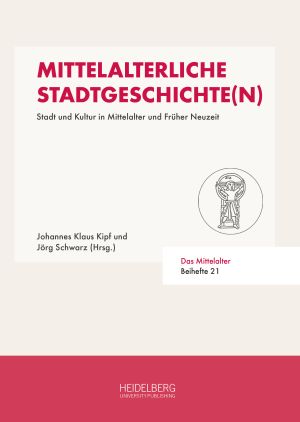Zitationsvorschlag
Lizenz (Kapitel)

Dieses Werk steht unter der Lizenz Creative Commons Namensnennung - Weitergabe unter gleichen Bedingungen 4.0 International.
Identifier (Buch)
Veröffentlicht
Toledo als plurireligiöse Lebensform
Das romanistische Konzept von temporal definierten ‚Hauptstädten‘ wird auf die mittelalterliche Faszinationsfigur von Toledo als ‚Hauptstadt des 13. Jahrhunderts‘ angewandt. Die kastilische ‚Metropole‘ ist, vor allem unter König Alfons dem Weisen, als plurireligiöse Gesellschaft bekannt, in der drei ‚Kasten‘ zusammenleben: Christen, Mauren und Juden, was mit dem Begriff der convivencia bezeichnet wird (Américo Castro). Gleichwohl beruht die soziale und juristische Ordnung auf Segregation. Kontrastiv dazu manifestiert sich in der Sphäre der Künste und in der iberischen Literatur ein alternativer Umgang mit Diversität, was zum Anlass reicher Übersetzungstätigkeit wird. Miteinander konfligierende Reden, Traditionen und Religionen werden ästhetisch ‚gerahmt‘. Eindrückliche Beispiele hierfür stehen in Verbindung zum Kulturraum Toledo: 1. die Gattung der mozarabischen Chardscha am Schluss eines arabischen oder hebräischen Liebesgedichts; 2. der Gesang der heidnischen Sibylle in der galicischen Mariendichtung des Königs Alfons; 3. die zwischen Weisheitsdichtung und Satire changierenden ‚Proverbios morales‘ des Rabbi Sem Tob und 4. die Inszenierung von Mehrsprachigkeit im ‚Libro de buen amor‘. Das Acting-out heterogener Reden, die einander fremd sind, erfolgt nicht im Modus der Hybridisierung oder der Übersetzung, sondern der Juxtaposition. So wird Literatur mit Michel de Certeau gesprochen zu einem Dispositiv der ‚Heterologie‘, worin die ‚Rede des Anderen‘ zu Gehör kommt.
Schlagwörter Toledo; Kastilien; Leon; convivencia






